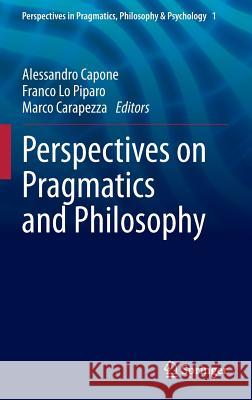Perspectives on Pragmatics and Philosophy » książka
Perspectives on Pragmatics and Philosophy
ISBN-13: 9783319010106 / Angielski / Twarda / 2013 / 647 str.
This book is about the pragmatics of language and it illustrates how pragmatics transcends the boundaries of linguistics. This volume covers Gricean pragmatics as well as topics including: conversation and collective belief, the norm of assertion, speech acts, what a context is, the distinction between semantics and pragmatics and implicature and explicature, pragmatics and epistemology, the pragmatics of belief, quotation, negation, implicature and argumentation theory, Habermas' Universal Pragmatics, Dascal's theory of the dialectical self, theories and theoretical discussions on the nature of pragmatics from a philosophical point of view.
Conversational implicatures are generally meaning augmentations on top of explicatures, whilst explicatures figure prominently in what is said. Discussions in this work reveal their characteristics and tensions within current theories relating to explicatures and implicatures. Authors show that explicatures and implicatures are calculable and not (directly) tied to conventional meaning.
Pragmatics has a role to play in dealing with philosophical problems and this volume presents research that defines boundaries and gives a stable picture of pragmatics and philosophy. World renowned academic experts in philosophy and pragmalinguistics ask important theoretical questions and interact in a way that can be easily grasped by those from disciplines other than philosophy, such as anthropology, literary theory and law.
A second volume in this series is also available, which covers the perspective of linguists who have been influenced by philosophy.











